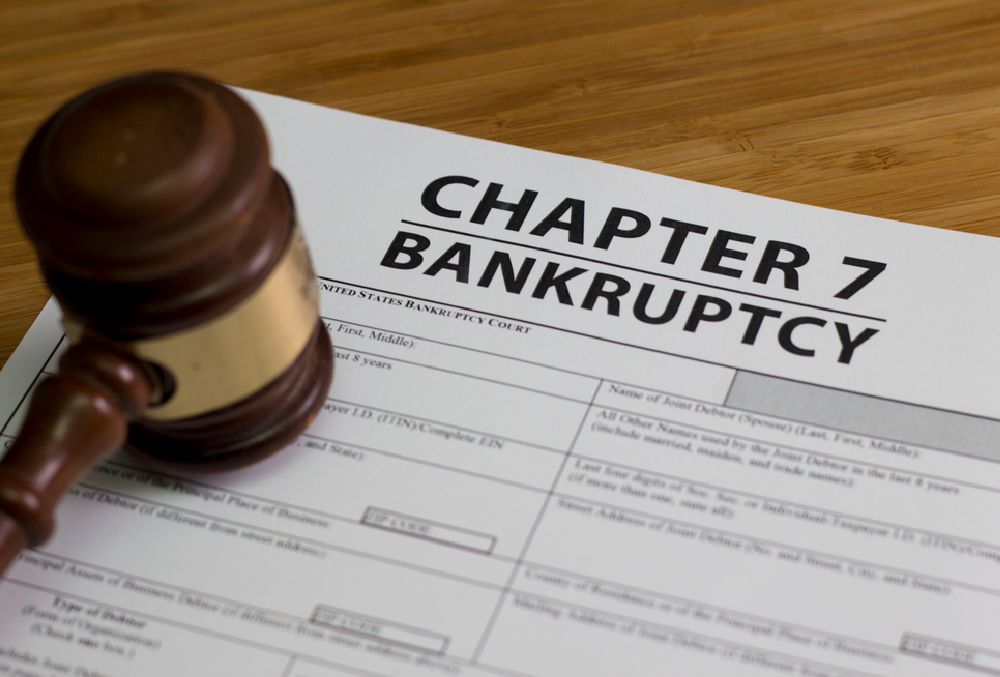The bankruptcy process involves looking at your assets. In a Chapter 7, or liquidation bankruptcy, some of your property may not be protected, and you could lose it. Every state has different property exemption rules. Most Chapter 7 filings are what we call a “no asset” case. However, after you file, a bankruptcy trustee will review your list of exempted assets to determine whether or not you have the right to protect the claimed property.
In rare cases, if the trustee disagrees with the exemptions claimed, they can file an objection. When this occurs, it will then be up to a judge to decide whether the property you are claiming is truly exempt and protected. In most situations, the trustee will get in contact with you first to resolve the issue in case a mistake was made. If there is still a dispute, however, they will file the objection with the court.
Understandably, you want to protect and retain your property, but filing incorrect information in an attempt to save property that is not exempt will likely be seen as a fraudulent action. If you are found guilty of bankruptcy fraud, you could be charged with a significant fine and/or face several years in prison.
The good news is that we can still help you with your debts by filing a Chapter 13, or reorganization, case if non-exempt assets would cause a problem in a Chapter 7 filing. In a normal Chapter 13 there is no liquidation of assets. We simply structure a plan to pay what the law requires.
Filing for Chapter 7 or Chapter 13 bankruptcy is a challenging process, and it makes sense that you would want to protect your property. At Sawin & Shea, LLC, we have years of experience handling bankruptcy cases like yours and will help guide you through the process to ensure the best possible outcome.
Understanding Indiana Bankruptcy Exemptions
Every state handles bankruptcy exemptions differently. Before filing, it’s important to understand the specific laws of the state you live in. Debtors in Indiana can protect exempt property under both a Chapter 7 and a Chapter 13 bankruptcy. However, the property that is considered nonexempt will be handled differently depending on which chapter you file.
Property in Chapter 7 Bankruptcy
When you file Chapter 7 bankruptcy, any property determined to be nonexempt will likely be lost to the liquidation process. In these cases, the bankruptcy trustee will sell the property to pay something back your creditors.
Property in Chapter 13 Bankruptcy
Debtors who file Chapter 13 bankruptcy can keep everything they own. This is because instead of selling property to pay back creditors, a repayment plan will be decided upon based on what you can afford to pay. Keep in mind, however, that you will be required to pay creditors what they would have received had you chosen to go into a liquidation case through the repayment plan.
What Property is Exempt in Indiana Bankruptcy Cases?
As Indiana has opted out of federal bankruptcy exemptions, it has its own set of laws on what property can be exempt from bankruptcy. Some of the more common property exemptions include the following:
- Homestead: Debtors can each protect up to $19,300 of residential real estate equity. This applies to residential property and other personal property designated as your family or personal place of residence. Examples of this can include a house, a condo, a mobile home, or a farm. If you co-own the property with a spouse, the exemption amount doubles. In some cases property that is co-owned as husband and wife can be 100% exempt if only one of the couple is filing and there are no joint unsecured or priority debts.
- Motor Vehicle: No law in Indiana refers explicitly to motor vehicles as exempt property. However, debtors can use the Indiana personal property exemption to protect their vehicles.
- Nonresidential and Other Personal Property: This exemption allows debtors to protect any nonresidential or other tangible personal property up to a value of $10,250.
- Intangible Property: Cash and cash equivalents including bank accounts, cryptocurrency, monetary claims, tax refunds and other items that are cash or represent a right to money can be protected up to $400 total.
- Pension and Retirement: Retirement benefits are also considered a type of property that can be protected as well. This includes pensions, retirement funds, IRA accounts, and other retirement benefit plans.
- Personal Property: Nonresidential personal property that can be exempt includes:
- Health aids
- Military uniforms and equipment
- Medical care and health savings accounts
- Tuition programs and education savings accounts
- Spendthrift trusts
- Interest in earned income credit or refunds for exempt bankruptcy property
- Insurance: Insurance benefits and policies can also be exempt. This includes fraternal society benefits and life insurance policies that name the insured spouse, children, or dependent relatives as beneficiaries.
- Other Exemptions: Other miscellaneous exemptions include unemployment compensation benefits, workers’ compensation, certain partnership properties, and the lesser of 75% of earned but unpaid wages (or 30x the Federal minimum wage).
How Sawin & Shea, LLC Can Help
Though a property or item may be listed as exempt, this does not automatically mean you will get to keep this property. Filing for bankruptcy and listing your exemptions requires a lot of work, and there are specific steps that must be followed to ensure your exempt property is protected. It is always best to consult with a bankruptcy attorney before doing anything on your own to avoid mistakes and ensure your property is protected.
At Sawin & Shea, we have years of experience helping property owners like yourself and know what it takes to ensure your property is exempt and protected. Our attorneys are here to help you through the process every step of the way.
Contact us at 317-759-1483 or send us an email for a free consultation today!



